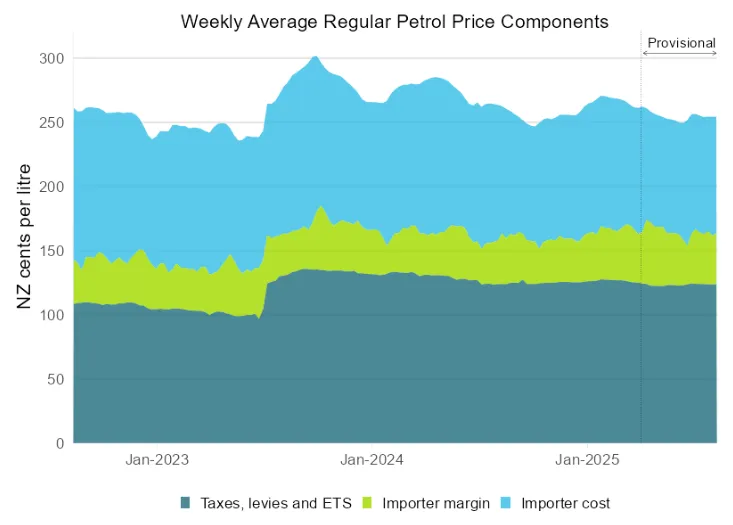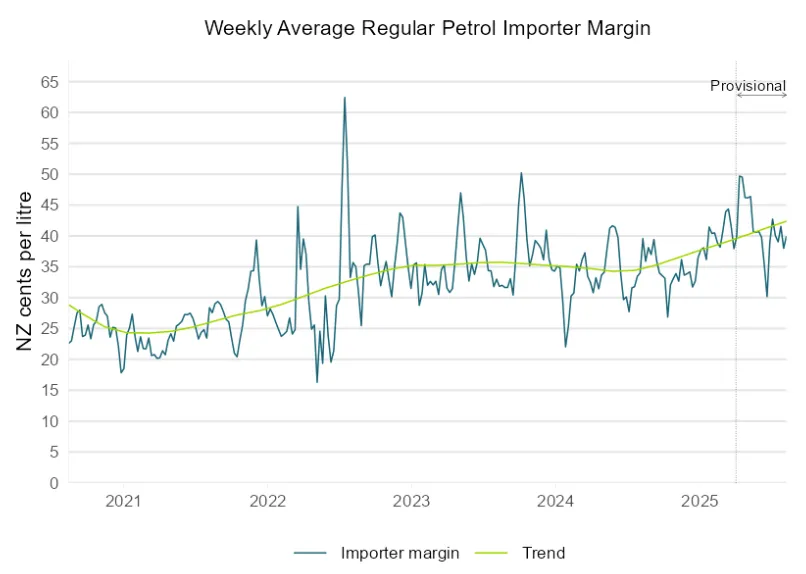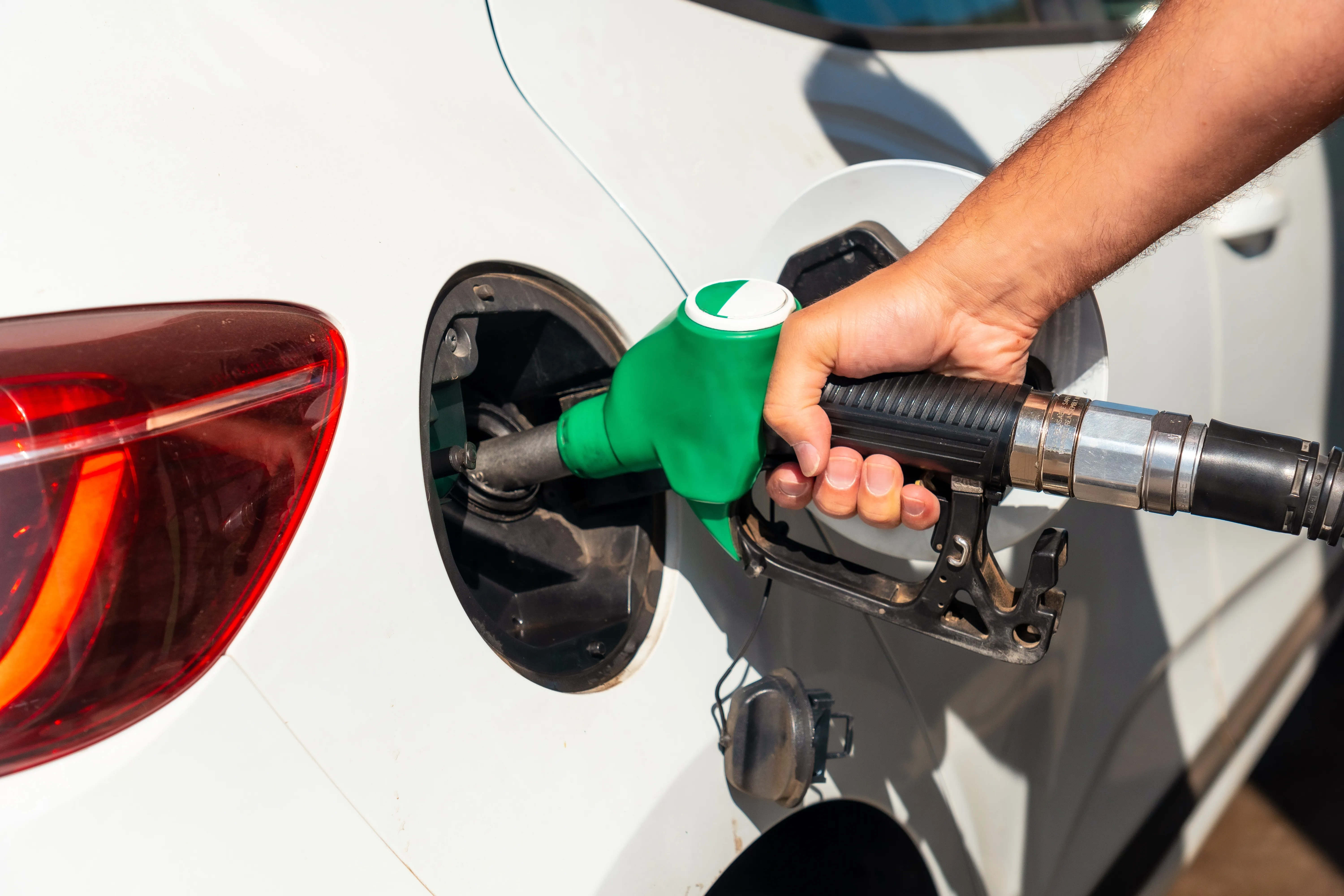Petrol prices at the pump in New Zealand rise and fall on a regular basis. But while weekend and holiday price-hikes at the pump are down to local retailers' price-setting, most of the costs associated with petrol prices are due to:
- Importer costs, which are affected by geopolitics
- Taxes, which are set by the government
Below we break down the cost of petrol in New Zealand:
Cost of petrol: taxes
You're not just paying for petrol when you fill up, you're also paying taxes.
National fuel taxes per litre of 91:
- 70.024c – National Land Transport Fund
- 6c – ACC Motor Vehicle Account
- 0.66c – Local Authorities Fuel Tax
- 0.69c – Petroleum or Engine Fuels Monitoring Levy
- GST at 15%
This means that, for most Kiwis, the amount of tax on a litre of gas is now around 79c.
Overall, when you add all related levies and Emission Trading Scheme costs, around half the price of petrol at the pump is tax:

Source: MBIE
Cost of petrol: importer costs & margins
After taxes, the rest of the cost of fuel at the pump comes down to importation costs and importers' mark-ups.
Of course, geopolitics plus global supply and demand has much to do with importation costs.
As you can see from the graph below, over the past five years, importer margins have increased from an average of 28c per litre to around 43c.

Source: MBIE
Cheaper petrol in 2027
Increased fuel efficiency and the advent of EVs and hybrids means the government is collecting less fuel excise revenue, which means less money to pay for the road network.
Because of this, the government has announced plans to remove petrol levies at the pump and introduce Road User Charges (RUCs) for all vehicles. The details of the new RUCs are still being worked out, but the new scheme is set to be introduced in 2027.
However, while this will lead to cheaper petrol for Kiwi drivers, any savings are sure to be offset by the cost of the RUCs.



